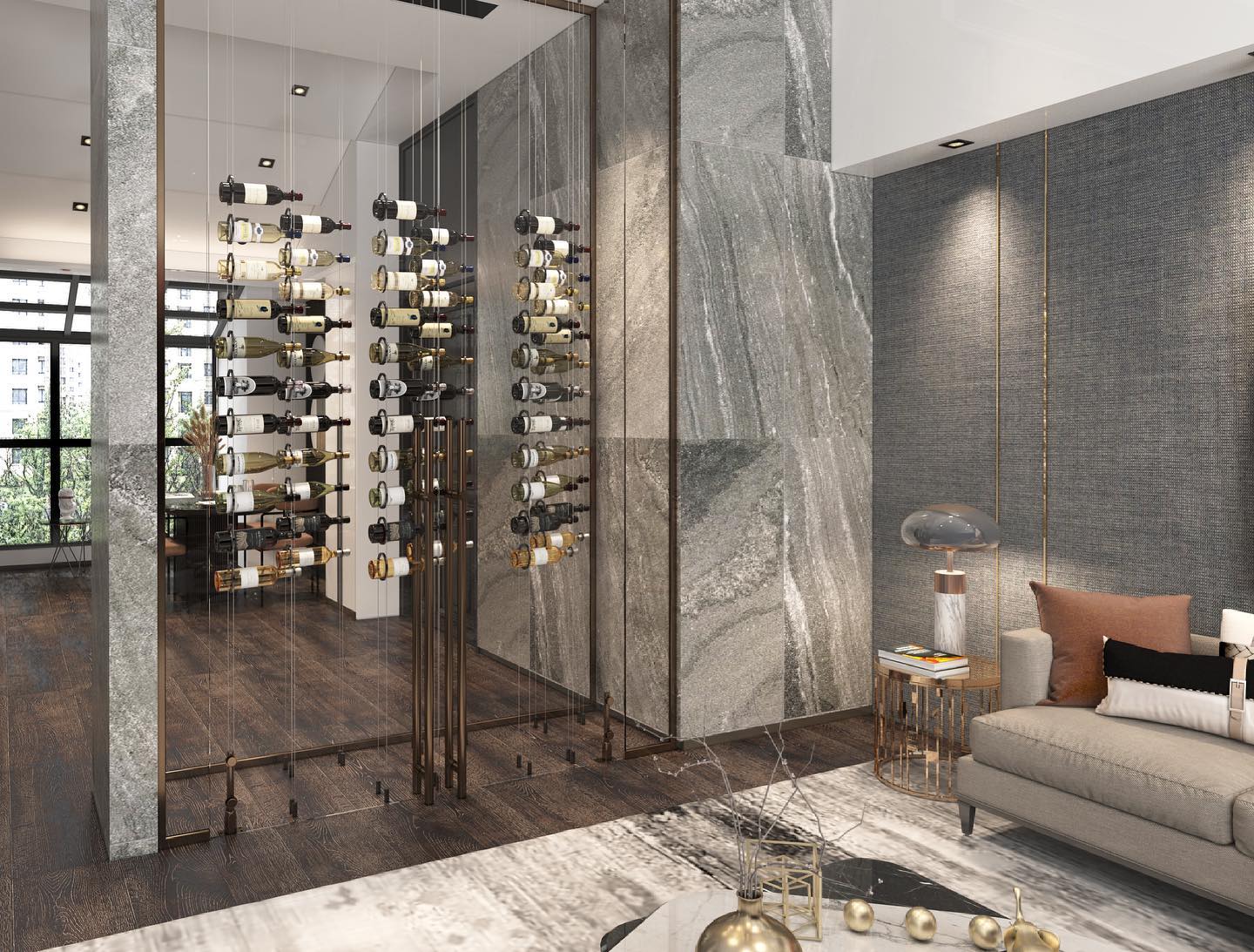
Full Turnkey Wine Cellar Services in Miami: Custom Designs & Expert Installation
Book an appointment Request free design Free Heatload Calculation Why Miami Homes Need a Custom Wine Cellar? Miami is known for
Are you a wine enthusiast or collector with a passion for preserving the finest vintages? Look no further than Cool Wine Cellar. Our specialized services are tailored to your wine cellar racking & cooling needs.
Our expert design team at Cool Wine Cellar will work closely with you to craft a wine cellar that reflects your unique taste, complements your home’s aesthetics, and provides the optimal conditions for wine storage. Here’s what you can expect from our services:
We tailor every aspect of your wine cellar to your preferences – from racking systems to lighting and overall layout.
We ensure your wines age gracefully by calculating and providing the correct cooling unit options that will give precise temperature control. With some units allowing for humidity control as well.
We make the most of your basement’s available space, creating a functional and elegant storage solution.
Your wine cellar will not only be a sanctuary for your wines but a visual masterpiece in your home.
Our experienced team at Cool Wine Cellar will bring your vision to life, with quality craftsmanship and attention to detail.
Whether you’re a seasoned sommelier or just starting your wine journey, our basement wine cellar designs will add a touch of class to your home while preserving and showcasing your wine collection. Elevate your wine experience with Cool Wine Cellar today!
Explore Our Product Ranges
FAQ’s About Custom Wine Cellars
Certainly! Here are some frequently asked questions (FAQs) about turning a basement into a wine cellar:
The first step is to assess your basement’s suitability for a wine cellar. Check for temperature and humidity, insulation, and potential moisture issues. Room construction is key when building a temperature-controlled basement wine cellar. Some basement cellars can be passive wine cellars. A passive wine cellar is a wine cellar that does not use a cooling unit but the natural temperature of the basement stays below 70 degrees year round.
There are many DIY kits available for you to create a beautiful wine cellar but it’s advisable to consult with a professional or a wine cellar designer, especially if you’re not experienced with wine storage. They can help you create an optimal environment for wine aging. Please contact us for a free design
Ideal wine storage conditions are around 55°F (13°C) with 50-70% humidity. Proper room construction, insulation, location, climate control systems, and a vapor barrier are essential to maintain these conditions.
The choice of racking depends on your budget and style preferences. Common options include wooden racks, metal racks, or modular systems. Consider how you want to display and store your wine bottles.
Use low-heat, low-UV LED lighting to showcase your wine collection. UV rays can be harmful to wine. Lighting should be dim and strategically placed.
Wine cellar cooling units are highly recommended for temperature control if the space you want to use gets hotter than 70 degrees. The choice of the unit depends on the cellar size and location. Options include through-wall, ducted, and split systems.
Yes, insulation is crucial to maintain stable temperature and humidity levels. It helps your cooling system work efficiently and prevents temperature fluctuations.
Most basements can be converted into wine cellars, but it’s essential to check local building codes and permits. Some zoning restrictions or environmental factors may apply.
Organize your wine by type, region, or age. Many wine collectors use software or inventory systems to keep track of their wine collections.
Costs vary widely depending on factors such as size, design, materials, construction and the need for climate control systems.
These FAQs should provide a good starting point for anyone considering the conversion of their basement into a wine cellar. Always consult with professionals and conduct thorough research to ensure a successful project.

Book an appointment Request free design Free Heatload Calculation Why Miami Homes Need a Custom Wine Cellar? Miami is known for
Showroom Available By Appointment
Established 2014 Copyright ©2024 Cool Wine Cellar. All Rights Reserved